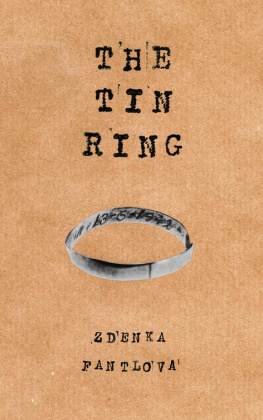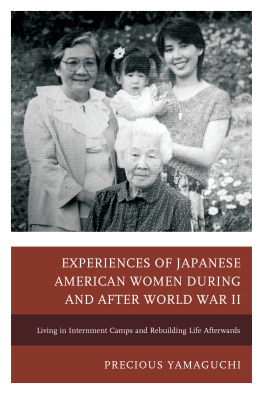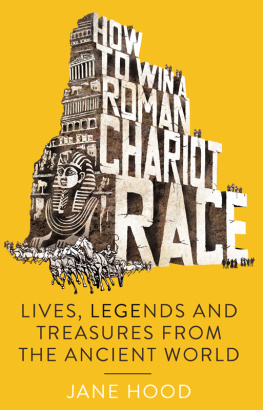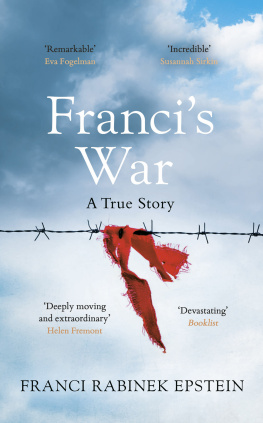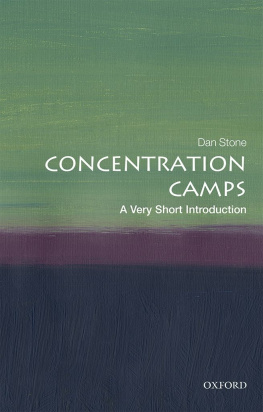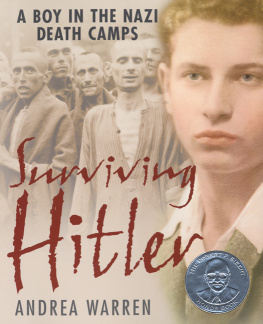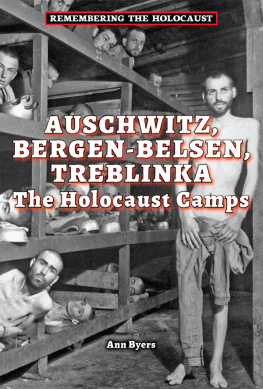When I came back to my home town after fifty years absence, three of my former schoolmates asked me the same question:
What on earth happened to you and your family after the Germans took you off to the concentration camp in January 1942? What was your day-to-day life like, and how is it that you are the only one of your family to have survived in fact, the only one of all those they took from this town?
This set me thinking. If people of my own generation, even my closest friends, knew nothing of the life we led between 1942 and 1945, what notion of it could the younger generation have?
Those of us who actually survived the German extermination camps are the sole eye-witnesses of that era. There are not many of us still alive. And when the last of us dies we will take all our experiences to the grave with us. No one will ever be able to read about them or judge what it was like for us or what we thought about our world. Each of us endured and survived it in different ways. Our memories form part, though only a small part, of the whole historic truth. I decided to attempt a portrayal of those events in which I became enmeshed as a seventeen-year-old girl.
ThetrainfromPraguestoppedatthestationinaprovincialtown.Severalpeoplegotout,hurriedacrosstheplatform,meltedthroughasubwayintothesurroundingstreetsandspedhomewards.
Amongthemwasanelderlywomaninanautumnsuit,hatlessandcarryingonlyashoulderbag.Shehadnoluggage.Shemadeherwayslowlythroughthebookinghalllikesomeonewhoisinnohurry.Therewasnoonetomeether,butshehadnotexpectedanyone.Comingoutshetookintheautumnairbeforestoppingshortatthewidestepsthatleddowntothestreet.Shecasthereyesarounduncertainly,asifshehadarrivedhereforthefirsttime.Perhapsshewasevenalittlenervousaboutgoinganyfurther.
Atthebottomofthestepsstoodayoungladleaningonhisbicycle.Hewatchedherforamomentanddecidedthatthewomanhadnoideawhereshewasorwhereshewantedtogo.Withamixtureofcuriosityandgoodwillheasked:
Areyoulookingforsomebody?
Shereactedslowly,asifwokenfromadream.
Yes,Iam.
Doyouknowwheretheylive?
Ido,sheansweredquietly.
Anddoyouknowtheway?Ifnot,Icantakeyouthere.
Thankyou.YoureverykindbutIcanfindmyownway,shesaidwithasmile.Seeinghewasnotwanted,theboygotonhisbikeandrodeoff.Thewomanwalkeddownafewstepsandstoppedagain.
Hereontheleftthereusedtobeaninstitutefortheblind,shethought,searchinghermemorylikesomeonesnatchingatadream-visionglimpsedintheraggedwebofmorningslumber.Therehadoncebeenalawninfrontofthebuilding,sherecalled,withsandypathsandawirefenceallaround.Nexttothefencetherealwaysstoodablindmanwearingtheinstitutesuniformandplayingaharmonica.Asad,slow,invariabletune.Hemusthavelikedit. Heseemedtobeplayingforhisownpleasure.
Buttheblindmanhadvanishedlongago.Sohadthelawnwithitspaths,andtheinstituteitself.
Finallyshewalkeddowntherestofthestepsandmadeherwayintotown.Sheknewtherouteexactly,asiffollowinganinvisiblemap.Attimesshefeltshewasreturningfromanafterlife.Everythingwassofamiliartoher,eachstreet,eachstone,asifshewereanolddogsniffingitsway.Shemighthavebeeninvisibleherself,forallthenoticepeopletookofher.Ateverystepthescenewasexactlyasintheolddaysandyetquitedifferent.ShepassedacemeterywheretheysoldcandlesandastersonAllSoulsDay.Aninscriptionovertheentrancehadremindedvisitorsthattheworldwasnottheirhomeforever:
What you are now, so once were we.
What we are now, you too will be.
Shewalkedthroughanarrowgateleadingintowhathadoncebeenthemedievalwalledtown.Beyondthegatestoodaninn. Na Strelnici: HuntersInn,

